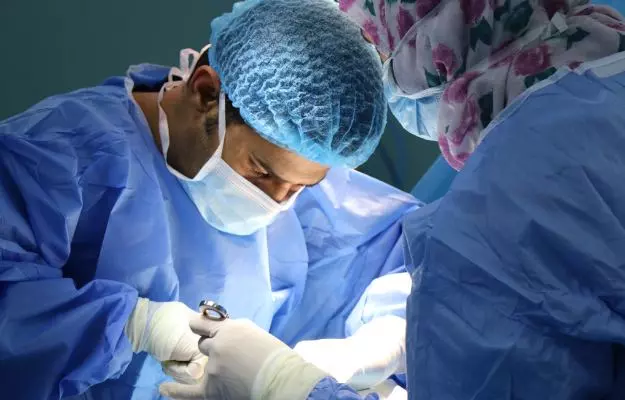A doctor will do a physical examination and take your medical history and will also conduct a pelvic exam to check your uterus, ovaries, vagina, and cervix for any abnormality. The vagina and cervix may be checked with a speculum (a medical tool used to see inside the vagina). The doctor may also do an HPV test and a Pap smear test. However, a biopsy (a small amount of tissue is removed and examined under a microscope) is the most certain way to find out if the cancer is present.
The doctor may examine the vulva with magnification, which is called vulvoscopy. A hand-held magnifying glass or colposcope may be used to select the area for biopsy. A colposcope (an instrument with magnifying lenses) allows the doctor to view the surface of the vulva clearly and closely. Sometimes, the vulva may be wiped with a dye to find abnormal areas for biopsy. When such areas are located, and the area is small, it may be removed completely. This is known as an excisional biopsy. If the area is large, then a small piece of it is taken, which is called a punch biopsy.
Few other imaging tests such as the following may be required.
Besides, if the doctor suspects that cancer may have spread to adjacent organs, the following tests may be used to look inside the body for signs of cancer.
In this test, a lighted tube is used to check the inside lining of the bladder. If any suspicious area is noted, then that area is biopsied. This test is done using local anaesthesia so that the area is numbed. Some people may require general anaesthesia (so that they are asleep during the procedure).
This test allows the doctor to check the inside of the rectum with the help of a thin, lighted tube. If any suspicious areas are found, then they are biopsied.
Pelvic examination is done under anaesthesia. While the patient is under deep sleep, the doctor can do a thorough exam and can evaluate the spread of cancer to the internal organs of the pelvis.
The healthcare provider will tell you the type of vulvectomy that you would be going through. The type of operation depends on the stage of cancer. Before the surgery, you will have to sign a consent form that gives your approval for the procedure. You will be checked to see if you are fit for receiving an anaesthetic and making a good recovery after surgery will be checked. You may have to go through a few tests, such as:
- Blood tests for general health and to check kidney function. Read more: Kidney function test
- Breathing tests (lung function tests)
- An ECG to check your heart health
- An echocardiogram (test of the heart using sound waves)
The surgeon will inform you about the benefits of the surgery, possible complications or possibilities after the surgery. The nurse will check your overall health, blood pressure, weight, temperature and pulse. The dietician will suggest managing your diet, give tips on increasing nutrients and calories, and may provide nutritional supplements/drinks before the procedure.
The following things should be done before going for the surgery.
- Quit smoking 6 to 8 weeks before the surgery. Smoking can lead to difficulty in breathing during the operation and slows down the healing process.
- You may be asked to stop the following medications before the surgery.
- Vitamin E, 10 days before the surgery as it may cause bleeding.
- Aspirin, herbal preparations, and other dietary supplements 7 days before the surgery.
- Non-steroidal anti-inflammatory drugs (NSAIDs) like ibuprofen, naproxen, 2 days before the surgery as they can cause bleeding.
- Check with your healthcare provider if you can continue using multivitamins.
- Avoid eating anything after midnight before the surgery, including hard candy and gum. You may drink up to 12 ounces of water between midnight and until 2 hours before the surgery.
- You will need to clean your bowel, by taking laxatives, the night before the surgery.
- Take a shower at home before the surgery. After the shower, do not apply any cream, lotion, cologne, makeup, powder, deodorant or perfume.
- Remove all nail polish, metal objects, jewellery, hearing aids, contact lenses, dentures, or body piercings before going for the surgery.






































